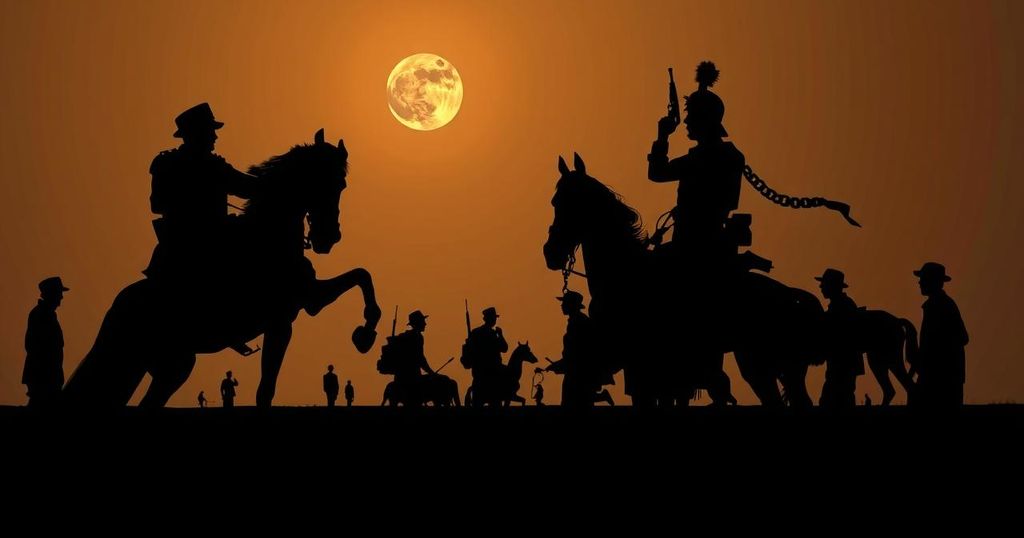Sudan’s Conflict: Power Struggle Between Generals Burhan and Dagalo
The conflict in Sudan has escalated significantly as tensions between two key military leaders, General Abdel-Fattah Burhan of the armed forces and General Mohammed Hamdan Dagalo, the head of the Rapid Support Forces (RSF), have erupted into open hostilities. These two generals, who famously executed a coup together 18 months ago that disrupted the country’s progress toward democracy, now find themselves at a decisive juncture in a war for control over a nation with a population of over 46 million.
Following months of unsettling negotiations aimed at reviving Sudan’s stalled democratic transition, which was derailed after the coup in October 2021, both leaders have refused to engage in ceasefire agreements or negotiations despite growing international pressure. In December, both military factions agreed to a preliminary deal with pro-democracy groups, yet they left several critical issues, particularly regarding the integration of the RSF into the military framework, unresolved. Tensions intensified as Dagalo attempted to reposition himself publicly as a pro-democracy ally while simultaneously overseeing military tactician strategies.
The situation took a drastic turn when the RSF positioned its forces around Merowe, a strategic location, and subsequently entered Khartoum without the permission of the armed forces. On a day of violent confrontation, clashes erupted at a military base south of Khartoum, with both sides accusing one another of instigating the violence. The ensuing conflict has resulted in heavy artillery exchanges, including airstrikes by the military against RSF positions, leading to numerous casualties and widespread chaos across the capital and beyond.
The likelihood of an immediate ceasefire appears bleak, as both generals have resolutely expected the other to capitulate. Nevertheless, foreign nations, including the United States and regional powers such as Saudi Arabia and the United Arab Emirates, have urged an end to hostilities amid escalating violence. Moreover, the onset of the Islamic holiday, Eid al-Fitr, at the conclusion of Ramadan may complicate humanitarian concerns, as civilians face significant hardship from ongoing conflicts.
The involvement of major foreign stakeholders adds layers of complexity to the conflict. Following the ousting of Sudan’s long-time ruler Omar al-Bashir in 2019, various nations have vied for influence, with military forces from both sides participating in international conflicts, such as the ongoing civil war in Yemen. This multi-faceted struggle for control over vital resources, including gold mines exploited by the RSF, underscores the urgent need for international diplomatic engagement to stabilize the situation in Sudan.
In summary, Sudan stands at a critical crossroads as intense fighting intensifies between Burhan and Dagalo’s forces. The urgent call for a ceasefire and diplomatic dialogue highlights the international community’s role in mitigating further violence, as lives hang in the balance and the prospect of democratic governance remains dim.







Post Comment